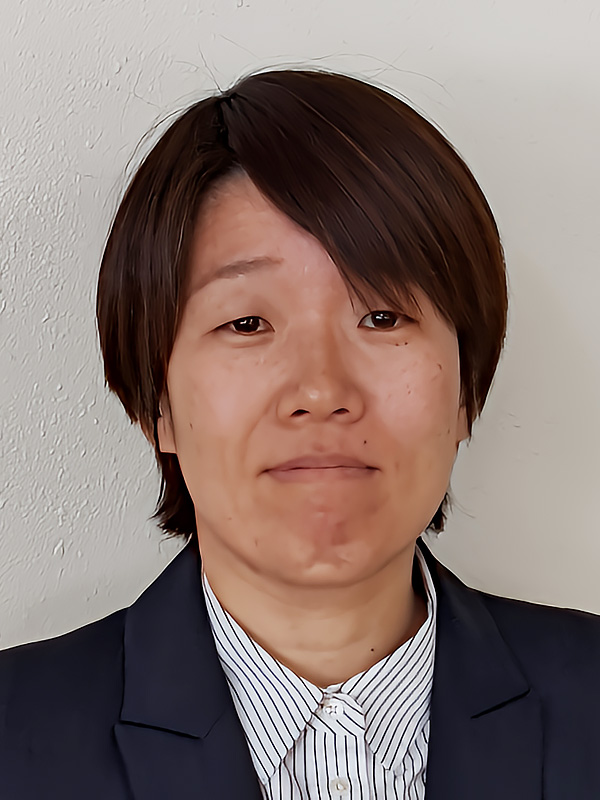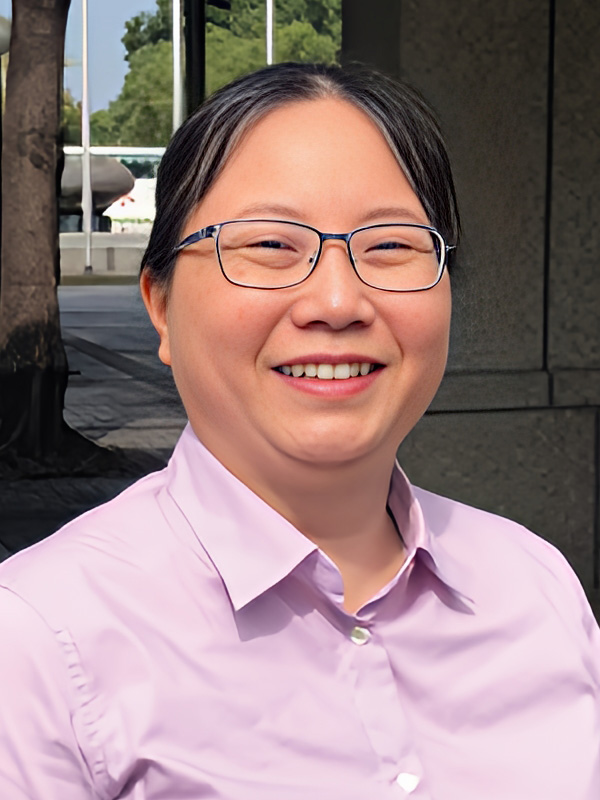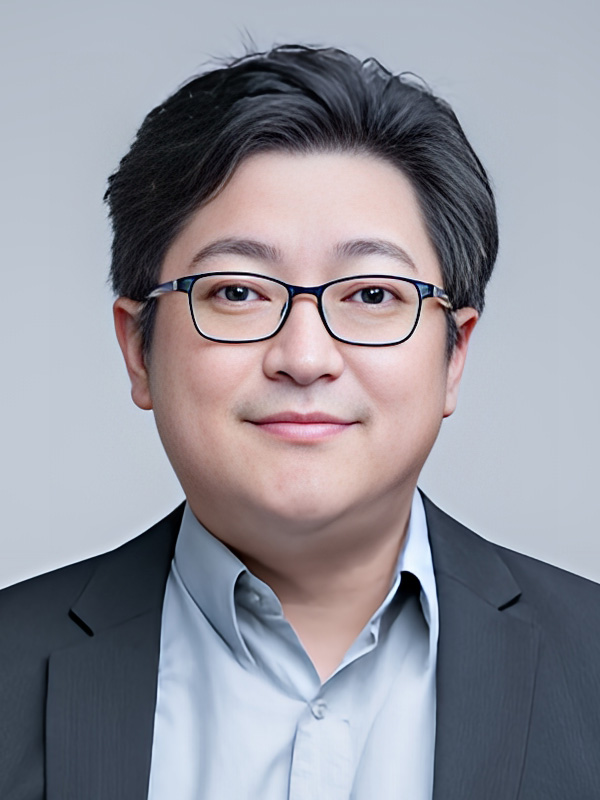

Ever wondered how research in circuits and systems can take you far beyond the classroom? This panel brings together distinguished researchers who will share their personal academic journeys, cutting-edge achievements, and unique experiences in global collaborations and international competitions.
| Wednesday, August 27, 2025 | ||||||
| 13:30-14:00 | Event Check-in |
|||||
| Location: Lobby of Wah Lee Hall, 1F, Building of International Research | ||||||
| 14:00-14:10 |
Opening and Group Photo |
|||||
| Location: Wah Lee Hall, 1F, Building of International Research | ||||||
| 14:10-14:35 | Beyond Borders: Building a Global and Cross-Disciplinary Research Life Speaker: Prof. Yoko Uwate (Tokushima University, Japan) |
|||||
| Location: Wah Lee Hall, 1F, Building of International Research | ||||||
| 14:35-15:00 | Circuits & Systems in the Age of Health Tech: Roles and Challenges for Future Engineers Speaker: Prof. Ya-Hsin Hsueh (National Yunlin University of Science and Technology, Taiwan) |
|||||
| Location: Wah Lee Hall, 1F, Building of International Research | ||||||
| 15:00-15:15 | Coffee Break | |||||
| 15:15-15:40 | Breaking Limits, Bridging Worlds: My Journey in CAS and EDA Research, Innovation, and Global Engagement Speaker: Prof. Andy Yu-Guang Chen (National Central University, Taiwan) |
|||||
| Location: Wah Lee Hall, 1F, Building of International Research | ||||||
| 15:40-16:05 | AI That Follows You: The Infinite Possibilities of Smart Robots Speaker: Prof. Kai-Yi Wong (National Sun Yat-sen University, Taiwan) |
|||||
| Location: Wah Lee Hall, 1F, Building of International Research | ||||||
| 16:05-16:30 | Forum Discussion Panel List: Prof. Yoko Uwate (Tokushima University, Japan), Prof. Ya-Hsin Hsueh (National Yunlin University of Science and Technology, Taiwan), Prof. Andy Yu-Guang Chen (National Central University, Taiwan), Prof. Kai-Yi Wong (National Sun Yat-sen University, Taiwan) Moderator: Prof. Ya-Hsin Hsueh (National Yunlin University of Science and Technology, Taiwan) |
|||||
| Location: Wah Lee Hall, 1F, Building of International Research | ||||||


In this talk, I will share my experiences of developing a research career through international mobility and interdisciplinary collaboration. By engaging in research activities across different countries and building networks with researchers from various fields, I have learned how diversity and global connections can enrich both scientific ideas and career opportunities. This talk will highlight key lessons learned, including how to find international opportunities, approach networking, and navigate cultural differences in academic settings. Practical suggestions will be provided to help early-career and women researchers expand their perspectives and take confident steps toward building their own global and cross-disciplinary research paths.
Yoko Uwate received the B.E., M.E., and Ph.D. degrees in electrical engineering from Tokushima University, Tokushima, Japan, in 2003, 2005, and 2006, respectively. From April 2008 to March 2010, she worked as a Postdoctoral Fellow for Research Abroad of the Japan Society for the Promotion of Science (JSPS) at the STOOP Group, Institute of Neuroinformatics (INI), University and ETH Zurich, Switzerland. In 2010, she joined the Department of Electrical and Electronic Engineering, Tokushima University, where she is currently an Associate Professor at the Nonlinear Circuits Laboratory. She also conducted international research as a Visiting Scientist at the STOOP Group, INI, University and ETH Zurich from August 2016 for six months, and as a Visiting Researcher at National Cheng Kung University (NCKU), Taiwan, from February to September 2019. Dr. Uwate served as Chair of the IEEE CAS Society Technical Committee on Neural Systems and Applications (2019–2021), and as Chair of the Diversity, Equity, and Inclusion (DEI) Committee of the IEEE CAS Society from May 2022 to December 2024. She is a member of the IEEE CAS Society Board of Governors (2013–2015, 2021–present).


In the era of rapid growth in health technology, the role of circuit and system engineers has expanded from traditional design and manufacturing to cross-disciplinary innovation and integration. From wearable devices and smart medical instruments to remote monitoring and AI-assisted diagnosis, the core drivers of health technology rely on high-performance, low-power, reliable, and secure circuit and system design. These innovations require engineers to bridge electronic engineering, data science, biomedical engineering, and user experience, while addressing challenges such as data privacy, regulatory compliance, clinical validation, and interdisciplinary communication. This talk explores the key roles of engineers in technological development, cross-domain collaboration, ethics, and sustainable development, and extends to an analysis of future career paths—including wearable medical device development, medical AI, system integration, regulatory affairs, and product certification—helping the audience envision how to leverage their expertise to advance human health and well-being in a cross-disciplinary innovation landscape.
Ph.D degree in Electrical Engineering from National Sun Yat-Sen University, Taiwan
Integrated system design, circuit design, FPGA system application, IC circuit design, Rehabilitation device, Soft actuator, Seniors related application system design, Friendly interaction system and APP development, Sports technology, Clinical application system design, production line environment sensing integration system, and automated detection system.


In this talk, Dr. Andy Yu-Guang Chen will share his personal and academic journey from early struggles to impactful contributions in Circuit and System (CAS) and Electronic Design Automation (EDA). He will highlight key research on chip aging and reliability, particularly under advanced effects such as Bias Temperature Instability (BTI) and Hot Carrier Injection (HCI), and how hands-on projects and real-world challenges shaped his practical insights into robust system design.
The talk also explores how international collaborations, global conferences, and cross-cultural exchanges have influenced Dr. Chen’s professional growth and academic vision. Through mentoring students and engaging in global competitions, he continues to bridge local talent with international opportunities. This talk offers reflections on resilience, innovation, and building a meaningful research career with both technical depth and global impact.
Dr. Andy Yu-Guang Chen received his B.S. and Ph.D. degrees in Computer Science from National Tsing Hua University, Hsinchu, Taiwan, in 2009 and 2016, respectively. He held the position of Lecturer at Missouri University of Science and Technology, MO, USA, in 2015, and later served as a research fellow at the University of Notre Dame, IN, USA, in 2016. Following this, Dr. Chen worked as a project assistant on the ICT project at St. Kitts and Nevis with ICDF Taiwan from 2016 to 2017. From 2017 to 2019, he was part of the Department of Computer Science and Engineering at Yuan Ze University. Currently, he is an Associate Professor in the Department of Electrical Engineering at National Central University, Taoyuan, Taiwan. Additionally, he has been an Adjunct Assistant Professor in the Department of Computer Science at National Tsing Hua University, Hsinchu, Taiwan.
Dr. Chen's research focuses on reliable circuit and system design, Computing-In-Memory (CIM) architecture design, AI for physical design, and hardware security. He has authored numerous technical papers and actively contributed as a committee member in major conferences such as DAC, ICCAD, ASP-DAC, DATE, A-SSCC, ISVLSI, GLSVLSI, SASIMI. He has also served as a reviewer for esteemed journals like TCAD, TVLSI, ACM JETC. Dr. Chen's involvement extends to co-chairing The CAD Contest at ICCAD and CADathlon at ICCAD from 2019 to 2023. Notably, he has received several awards, including The Chinese Institute of Electrical Engineering Outstanding Young Electrical Engineer Award (2023), National Central University Outstanding Teaching Award (2023), National Central University Excellent Hostel Instructor (2023), the Best Paper Award at the Workshop on Synthesis And System Integration of Mixed Information Technologies (SASIMI) (2024), and Taiwan Consumer Electronics Society Outstanding Youth Award (2024).


Imagine a future where going shopping means no longer lugging heavy items around—because a smart robot quietly follows behind, helping with carrying, reminding you of appointments, and even navigating around obstacles and recognizing its surroundings. This is the charm of “following robots.” In this talk, we will explore the underlying principles and real-world applications of this fascinating technology. When AI gains the ability to proactively follow your lead, the way we live begins to transform in powerful ways.
Keywords: Following robot, image recognition, sensor fusion
Kai-Yi Wong,(Member, IEEE) received the Ph.D. degree from the Department of Mechanical and Intelligent Systems Engineering, The University of Electro-Communications (UEC), Tokyo, Japan. She is currently an Assistant Professor with the Department of Electrical Engineering, National Sun Yat-sen University, Kaohsiung, Taiwan. Her research interests include robotics, intelligent systems, reinforcement learning, and nonlinear systems control.